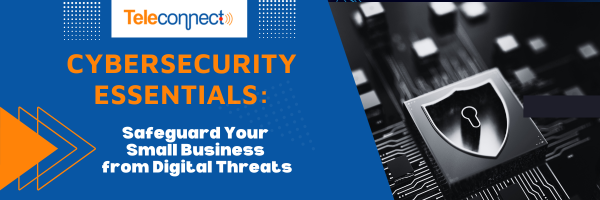
Small businesses are the backbone of our economy. However, they’re increasingly becoming targets for cybercriminals. Cybersecurity for small businesses is no longer optional. Cyber threats are evolving, and small and medium-sized businesses (SMBs) must step up to protect themselves.
We recently sat down with these cybersecurity experts, Jason Kaufman of Telarus and Forrest Kneuppel from Coro, to discuss the growing importance of cybersecurity for SMBs. Their insights shed light on unique challenges and practical strategies. Read the takeaways below or watch the full video now.
Understanding SMB Cybersecurity Threats and Vulnerabilities
Why are small businesses being targeted by cybercriminals? They possess valuable data but often lack robust security measures. Forrest Kneuppel points out that the availability of hacking services has made it easier for cybercriminals to attack SMBs.
Common cyber attacks against SMBs include:
- Phishing attempts
- Ransomware attacks
- Data breaches
- Social engineering scams
The impact of these incidents isn’t just short-term. They can severely damage customer trust and hinder business growth. As Forrest highlighted in our discussion, even a perceived lack of security can lead customers to switch to competitors.
Implementing a Layered Security Approach for Small Businesses
To combat these threats, SMBs need to adopt a multi-faceted approach to cybersecurity. This strategy should combine both human and technological elements.
Employee Security Awareness Training
Our experts emphasized that employee actions cause 86% of breaches. This statistic shows why comprehensive security awareness training is needed. By educating staff on best practices, SMBs can significantly reduce cyber-attack vulnerability.
Protecting Data Internally and in the Cloud
As businesses increasingly rely on cloud services, protecting data on-premises and in the cloud is vital. This involves implementing strong access controls, encryption, and regular backups.
Leveraging Technology for Anomaly Detection
Tools like those offered by Coro can be crucial in detecting anomalous behavior that might indicate a security breach. These technologies can provide early warnings, allowing businesses to respond quickly to threats.
Third-Party Risk Management and Cybersecurity Insurance for SMBs
As businesses become more interconnected, third-party risk management has become increasingly important. Jason Kaufman noted that it’s now a top request, especially from larger enterprises.
Steps to mitigate third-party risks include:
- Conducting thorough vendor assessments
- Implementing strong contractual safeguards
- Regularly monitoring third-party access and activities
Cybersecurity insurance is another key consideration for SMBs. However, Jason pointed out that it’s no longer automatically granted. Businesses need to demonstrate strong security practices to qualify for coverage.
Cybersecurity Assessment and Finding Trusted Advisors
One of the most valuable steps a small business can take is to get a professional cybersecurity assessment. Forrest recommended working with organizations like Coro to identify vulnerabilities and respond with a tailored security strategy.
When choosing a cybersecurity partner, look for:
- Expertise in SMB security
- A track record of successful implementations
- Transparent communication and reporting
- Solutions that can grow with your business
Jason emphasized the importance of finding a trusted advisor for information and relying on them for relevant data. This relationship can be invaluable as you navigate the complex world of cybersecurity.
The Role of AI in Enhancing Law Firm Cybersecurity and Efficiency
While discussing cybersecurity, our experts touched on AI’s potential in law firms. AI tools can automate tasks, improve efficiency, and gather insights from various communications data. However, it’s important to balance AI adoption with security considerations.
Potential applications of AI in law firms include:
- Document review and analysis
- Legal research assistance
- Predictive analytics for case outcomes
- Enhanced client communication and service
As AI adoption increases in the legal industry, law firms must ensure that their cybersecurity measures keep pace with technological advancements.
Taking Action to Protect Your Small Business
Cybersecurity for small businesses is an ongoing process. Start by assessing your current security posture, educating your employees, and implementing a layered security approach. Don’t forget to consider third-party risks and explore cybersecurity insurance options.
Remember, the cost of prevention is often far less than the cost of recovery from a cyber attack. Investing in cybersecurity now means you’re protecting your business and its future.
Stay informed about evolving threats and regularly review and update your security measures. With the right approach and trusted advisors, even small businesses can defend themselves against cyber threats.
FAQ (Frequently Asked Questions)
What are the most common digital threats facing small businesses?
The most common threats include phishing and ransomware attacks, data breaches, and social engineering scams. These can result in financial losses, data theft, and damage to business reputation.
How can I improve my employees’ cybersecurity awareness?
Implement regular security awareness training programs, conduct simulated phishing tests, and create clear security policies. Encourage a culture of security consciousness where employees feel comfortable reporting potential threats.
What is a layered security approach?
A layered security approach involves using multiple security measures to protect your business. This approach can include firewalls, antivirus software, encryption, access controls, employee training, and regular security assessments.
How important is third-party risk management for small businesses?
Third-party risk management is increasingly important as businesses become more interconnected. It involves assessing and monitoring the security practices of vendors and partners with access to your systems or data.
Should my small business invest in cybersecurity insurance?
Cybersecurity insurance can provide valuable protection against the financial impact of cyber attacks. However, it’s important to note that insurers are becoming more stringent in their requirements. Implementing strong security measures can help you qualify for better coverage.
Talley Technology is here to help you with your cybersecurity needs. Contact us today to learn how we can assist you with all your technology needs.
Many thanks to Jason Kaufman of Telarus and Forrest Kneuppel of Coro.
